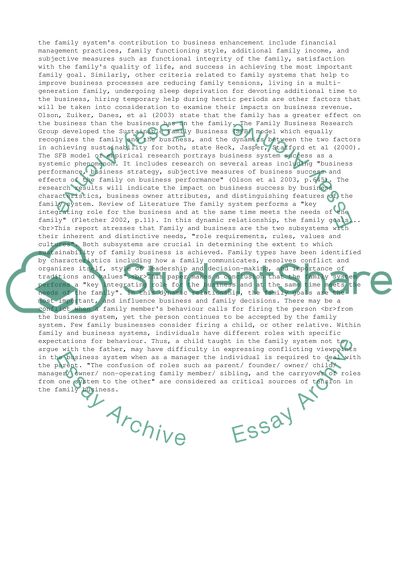Cite this document
(“Role of Family System And Business In Family Business Sustainability Essay”, n.d.)
Retrieved from https://studentshare.org/business/1396666-role-of-family-system-and-business-in-family-business-sustainability
Retrieved from https://studentshare.org/business/1396666-role-of-family-system-and-business-in-family-business-sustainability
(Role of Family System And Business In Family Business Sustainability Essay)
https://studentshare.org/business/1396666-role-of-family-system-and-business-in-family-business-sustainability.
https://studentshare.org/business/1396666-role-of-family-system-and-business-in-family-business-sustainability.
“Role of Family System And Business In Family Business Sustainability Essay”, n.d. https://studentshare.org/business/1396666-role-of-family-system-and-business-in-family-business-sustainability.


